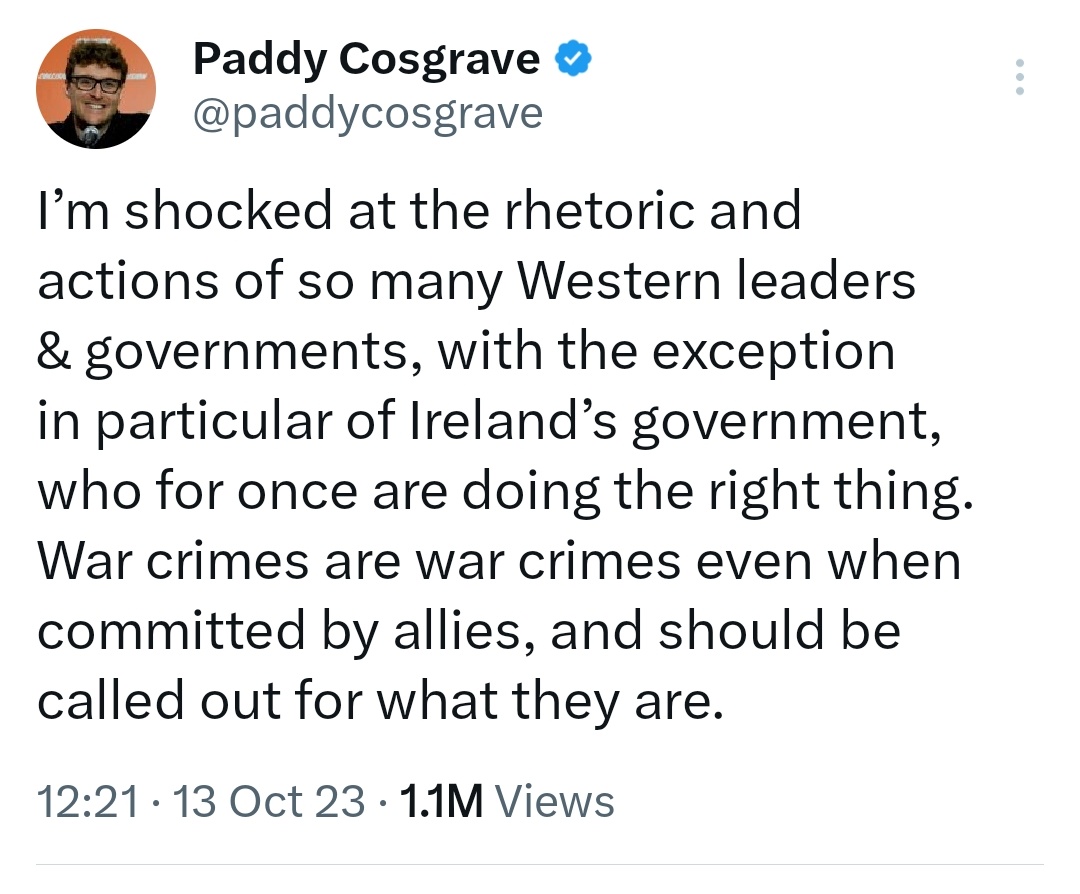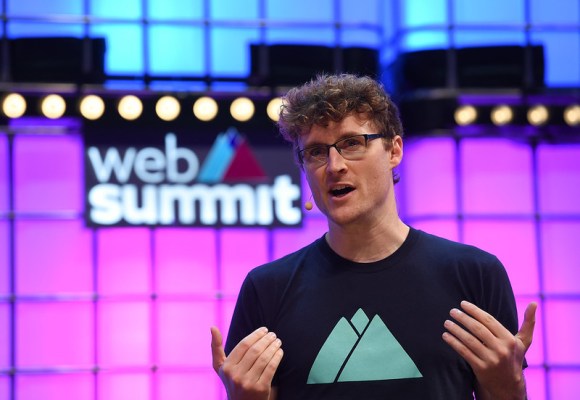Paddy Cosgrave, the co-founder of the Web Summit tech conference, is returning to his role as CEO after resigning in October over controversial statements he made about the Israel/Gaza war last year on social media. Rumors of his return began to surface over the weekend; Cosgrave confirmed the move in a post on X today.
Notably, in his announcement, Cosgrave does not make any mention of the politicized remarks he made that led to his departure less than six months ago (with the social media posts he wrote at the time deleted as well, aside from his public apology). Instead, Cosgrave goes for de-escalating, announcing plans for a shift in focus to “smaller” groups.
“As Web Summit becomes bigger, our aim should be to make it smaller for our attendees. More intimate. More convivial. More community focused,” he writes.
In doing so, the move is reminiscent of Mark Zuckerberg’s shift to “community” at Facebook in the wake of the social network’s huge post-2016 election scandal (Cambridge Analytica, election manipulation, congressional hearings and the rest).
Smaller groups, of course, give a larger entity — whether it is a social network or an event — a way to cater to different agendas and opinions. As with Facebook, the emphasis on community might be a counterweight to Web Summit’s bigger business aim: scale; in Web Summit’s case, growing its conference empire by getting as many people and companies as possible paying to attend its events.
In a subsequent post on the company’s blog, Web Summit outlined its new focus on targeting smaller communities, likely as a method to extract more value out of its events — both in terms of their ability to attract lucrative sponsorships, but also to make the large, sometimes unwieldy, conferences more valuable to individual attendees: “Over the last year we have tested small prototype meetups for attendees in similar industries like product engineers or marketing leads. All of these were facilitated through our Web Summit app… Our software, our design, our production and all teams and elements of Web Summit will expand to help make this worthwhile mission a reality.”
Web Summit runs a number of very large, global, tech conferences, the best known and biggest of which is in Lisbon, which in recent years attracted upwards of 70,000 attendees. The list also includes smaller, invite-only events under brands including F.ounders for later-stage founders, and other similar events.
Its flagship event went through a tumultuous period last year after it was engulfed in criticism from its large tech sponsors, who pulled out of the Lisbon Web Summit, just weeks out from it taking place, in the wake of Cosgrave’s remarks.
The controversy started when, shortly after October 7, the day of the Hamas massacre of Israeli citizens, Cosgrave posted data on X pertaining to the human cost of the Israel-Palestine conflict between 2008 and 2023, but — inexplicably — omitted any mention of the tragic events (and casualties) of that weekend.
Cosgrave also posted support for the Irish government’s criticism of Israel’s implied plans to cut off water and electricity to Gaza as part of its plans for the war.
(Later, Israel indeed did cut off water and electricity to Gaza, and the country’s government has been accused, by a vote in the UN’s Human Rights Council most recently, of actions that could amount to war crimes.)

Cosgrave tweet
In the face of an outcry, Cosgrave continued to double-down in subsequent posts.
This was the last straw for many of Web Summit’s speakers, with the loudest voices of criticism coming from Israel-based VCs and founders, who were then joined by several influential U.S.-based tech founders and investors.
Large sponsors, including Microsoft and Google, then pulled out of the conference.
Under pressure, Cosgrave apologized for offense caused by the posts and resigned as CEO.
Scrambling in the lead-up to the Lisbon event, Web Summit quickly appointed former Wikimedia CEO Catherine Maher as Cosgrave’s CEO replacement, even as Cosgrave retained an 80% ownership of the business.
It was a very short tenure: Maher left Web Summit a few months later for the CEO role at NPR, leaving Cosgrave’s company rudderless once again, setting the stage for Cosgrave’s return.
